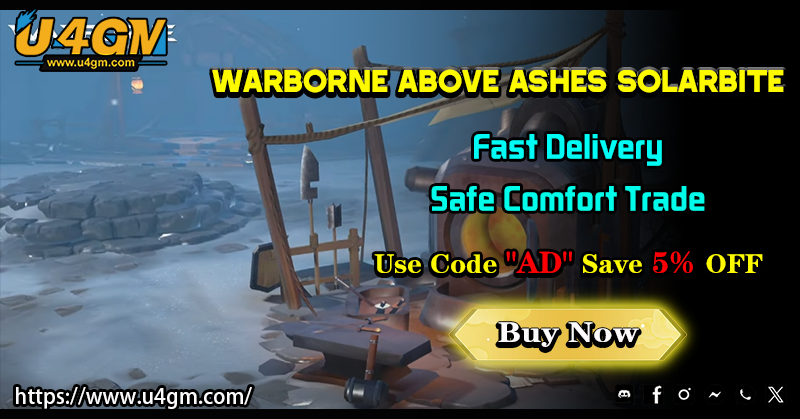In the increasingly complex world of Warborne: Above Ashes – Solarbite, players are not just immersed in high-stakes strategy and explosive mech warfare—they’re confronted with difficult decisions shaped by artificial intelligence, shifting morality, and ethically ambiguous choices. As someone who has spent countless hours in this immersive universe, I’ve come to appreciate how the game doesn’t just challenge your tactical skill—it challenges your values.
Here are five thought-provoking insights into how Warborne: Above Ashes – Solarbite explores AI, morality, and ethics on the battlefield.
1. AI Isn’t Just a Tool—It’s a Mirror
One of the most compelling features in Warborne: Above Ashes – Solarbite is the way artificial intelligence functions not merely as an ally or enemy but as a reflection of human intent. As players program their autonomous units or interact with sentient AIs, they quickly realize that these systems mimic not only tactical behaviors but also the moral frameworks of their creators. In one campaign mission, I was forced to decide whether to override a support AI’s safety protocols to achieve a faster objective, risking collateral damage. That decision lingered far longer than any post-match statistics.
2. Ethics in War: A Core Gameplay Mechanic
Unlike many strategy games where ethics are cosmetic or abstract, Warborne: Above Ashes – Solarbite integrates moral choices directly into its gameplay. Commanders must make calls on civilian safety, resource scarcity, and political alliances. Choosing to deploy a high-damage Solarbite reactor strike might win a battle—but it can alienate local populations or destabilize regional peace. My personal experience with the storyline emphasized that these aren’t just "good vs. evil" dilemmas—they’re gray zones that affect future missions and character arcs.
3. The Cost of Victory in the Age of Solarbite
Solarbite, the powerful energy source central to the game, is a double-edged sword. It fuels advanced tech and devastating weapons, but its extraction and misuse have dire ecological and humanitarian consequences. During my second playthrough, I opted for a path where I minimized Solarbite use in favor of traditional tactics. It was more difficult and required intricate planning—but it opened up unique alliances and a deeper sense of narrative satisfaction. The game cleverly encourages players to reflect on how power, even when cheap or easy to access, always carries a price.
4. Trust in Autonomous Decision-Making
AI-controlled units in Warborne: Above Ashes – Solarbite operate on both macro and micro levels, often making independent decisions when communication lines are down or under jamming conditions. The game forces you to place trust in your programming—or face the consequences of a drone misfiring in a civilian area. I once suffered a mission failure not because of enemy tactics, but due to an AI unit following a logic tree I hadn’t fully vetted. It made me reevaluate how much autonomy is too much, even in digital war.
5. Playing Cheap Doesn’t Mean Playing Shallow
There’s a misconception that opting for a cheap Warborne Above Ashes Solarbite experience—perhaps through discounts or budget builds—detracts from the game’s depth. That hasn’t been my experience. Even with lower-cost mech loadouts and entry-tier units, the game’s ethical complexity remains intact. In fact, the challenge of succeeding without top-tier gear often brought the morality systems into sharper focus. It became less about brute strength and more about clever tactics, diplomacy, and ethical foresight.
Warborne: Above Ashes – Solarbite is more than just a tactical strategy game—it’s a philosophical arena wrapped in mech armor. The battles are fierce, the tech is exhilarating, but it’s the AI-driven ethical dilemmas that leave the deepest mark. Whether you're diving in with premium gear or exploring the world through a cheap Warborne Above Ashes Solarbite setup, prepare to be challenged on more than just the battlefield.
Try These Tips: Romance Options in Warborne Above Ashes Solarbite: Who Can You Date?
 Free IL
Free IL


